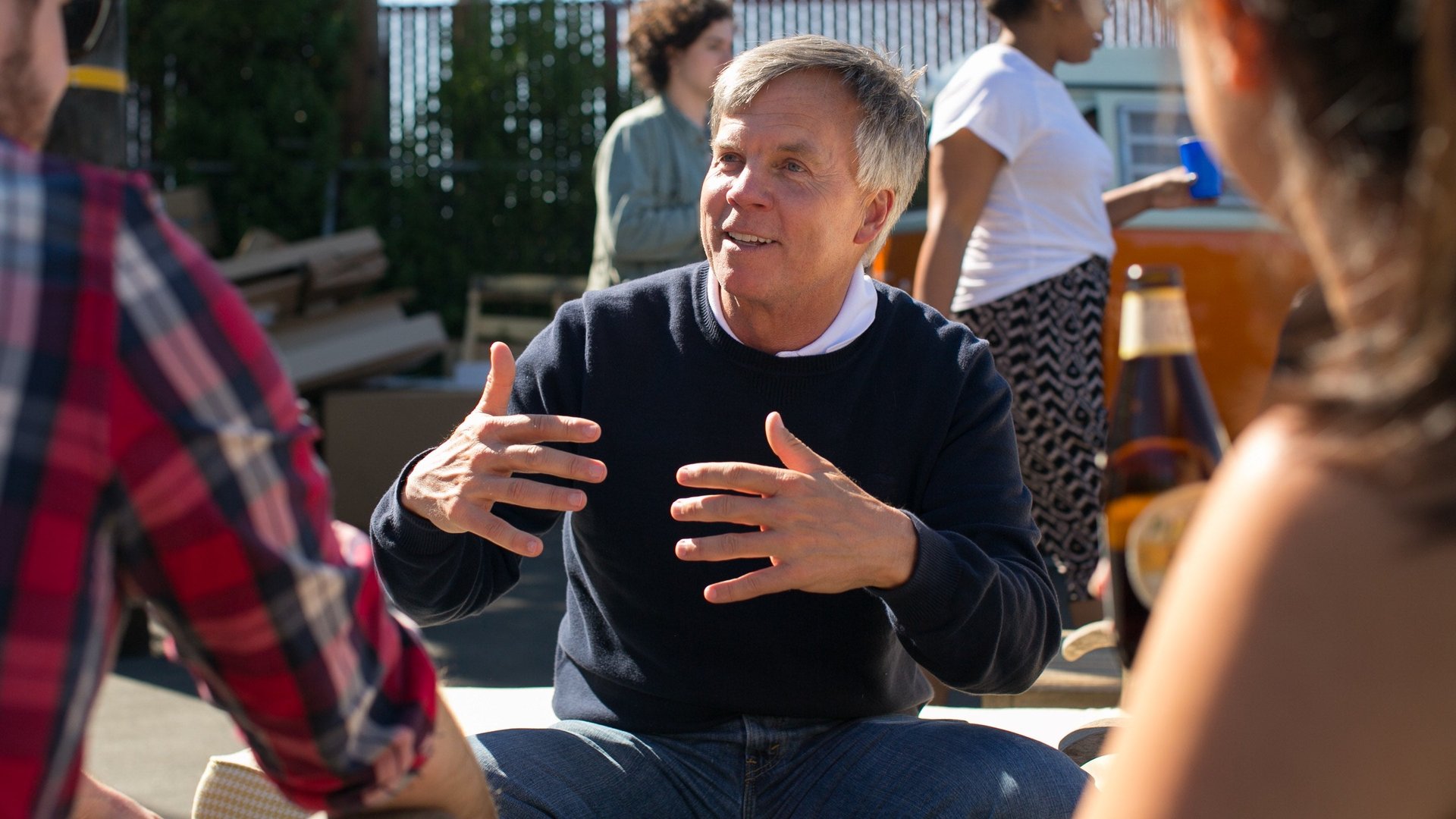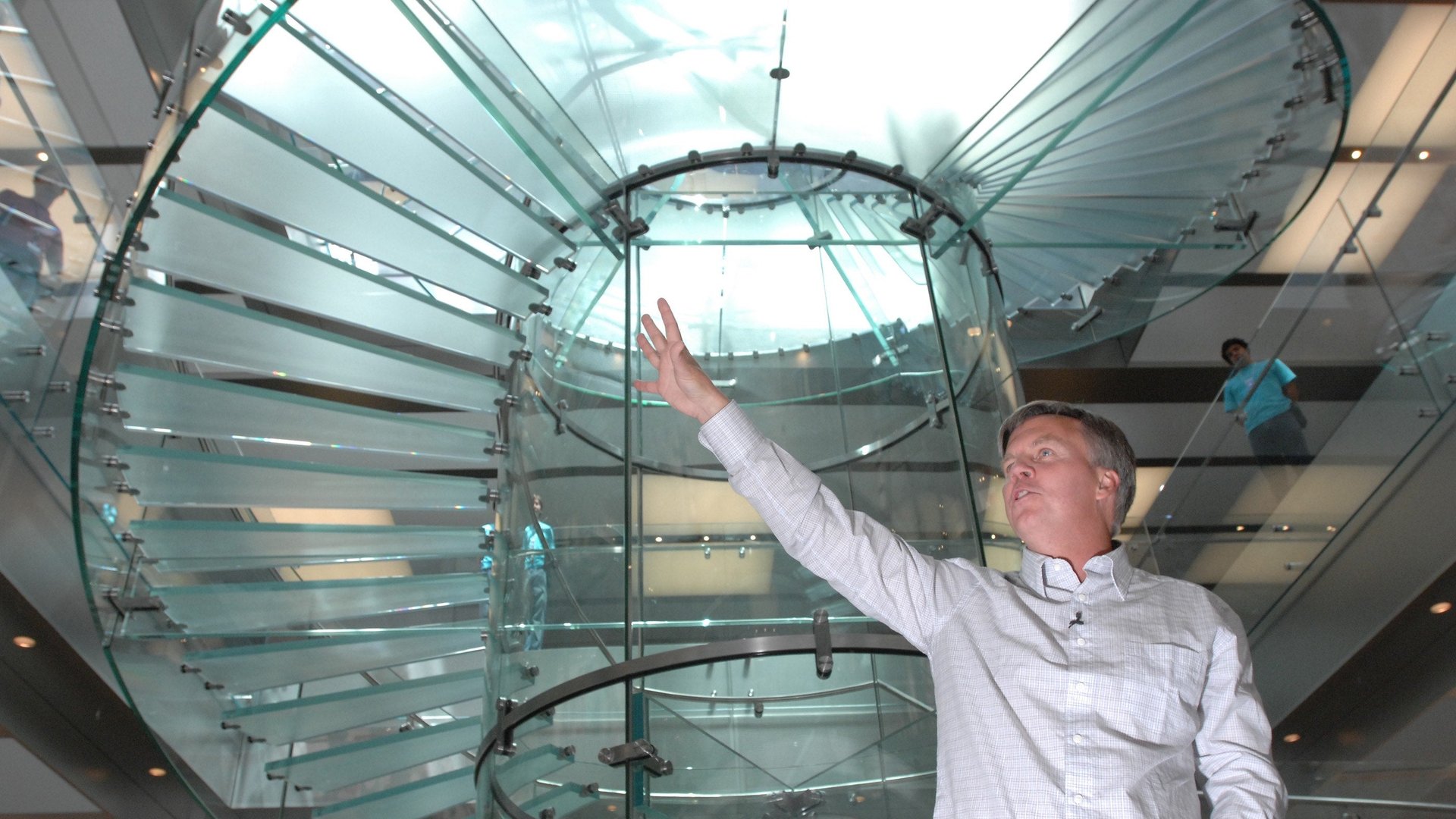The man behind the Apple Store says his new, on-demand tech company will be a part-time workers’ paradise
As Apple’s first head of retail, Ron Johnson built an empire by designing stores people would actually want to visit, focusing on customer service at almost any cost, and building a high-quality workforce. He then failed to recreate the same sort of magic as CEO of JCPenney, the US department store chain. But now Johnson is back with another spin on retail.


As Apple’s first head of retail, Ron Johnson built an empire by designing stores people would actually want to visit, focusing on customer service at almost any cost, and building a high-quality workforce. He then failed to recreate the same sort of magic as CEO of JCPenney, the US department store chain. But now Johnson is back with another spin on retail.
Johnson’s new firm, Enjoy—which launched this month in San Francisco and New York—combines e-commerce, customer service, training, and support. Customers can buy a curated selection of gadgets like drones or wireless speakers directly or from a partner site, and then choose when an Enjoy “expert” will deliver it to their home, office, café, or wherever, and teach them how to use it for an hour.
But what’s just as interesting is how Johnson intends to build this company: employing a fleet of part-time workers that can pick their own hours, à la Uber, but have the stability and benefits of a full-time, salaried position.
“Uber created the ability for people to work when they want. That’s been a huge contribution to society,” Johnson said at a dinner with journalists this week in New York. ”And people love the freedom it provides, because people want to work when they want and not be stuck in an office. But I really think they deserve a better job.”
How would that job look? Johnson and executives touted things like:
- Salaried income for employees working 25 or more hours, plus “surge pricing” overtime opportunities. Star employees could earn in the high five-figures, Johnson said.
- The ability to set your own schedule and hours, and pick your location—spend the summer working in another city, if Enjoy offers service there.
- Stock options, benefits.
- Custom-designed, subtly branded, seasonally appropriate uniform wardrobes via a partnership with Uniqlo.
- In New York, a nice, big space to hang out between appointments—the company’s ”house” in the NoHo neighborhood.
Why all this for a staff of gadget-delivery-and-setup whizzes? Johnson had a rather low-tech response: “Our product is a person.”

Of course, most service companies’ products are people—that is, until they’re replaced by robots. But Johnson’s stance also seems to contradict the spirit of Silicon Valley’s on-demand economy, which is often designed to minimize human contact and interaction. I asked Johnson what he thought about that tension.
“We are the opposite,” he said. ”Most of the on-demand companies were created by engineers. They figured out how to optimize delivery, speed, labor models to be efficient. We’re taking the approach that it’s all about the high-touch.” Scaling that—finding thousands of compassionate, empathetic, skilled, on-demand workers—will be the hard part, he admitted.
To prove it’s still early days for his industry, Johnson relayed the story of one of Apple’s flagship stores in London, on Regent Street. The land there has been controlled by the Crown Estate for almost a thousand years, he said. “That’s how long physical retailers have been competing and designing the experience,” Johnson said.
“We’ve got 20 years of e-commerce, driven by engineers—technologists,” he continued. “We’re now saying: What if you marry a personal experience with a digital delivery system, if you will. We think there will be demand for that.”